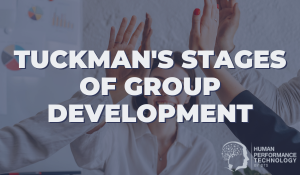20+ Statistics on Leadership Development
This is an article from our archives which we have updated with some recent statistics around leadership development. Back in 2017, we conducted an internal project to see what sort of statistics were available on corporate leadership (strategy, competencies, effectiveness, development, diversity, etc). After 3 weeks scouring the web, we managed to collect and sort 300+ stats. From the larger collection, here is a small sample relevant to leadership development. We have also included some more recent statistics we found interesting while developing a leadership program for a customer.
New Statistics
-
Some interesting facts from a recent study include that only 14% of CEOs feel they have the leadership talent they need to execute their business strategies, companies with greater gender diversity in leadership roles are typically 1.4 times more profitable, companies that develop high-potential leaders earlier are 4.2 times more likely to financially outperform ones that don’t and the old do-it-yourself model doesn’t work. Source
-
Anyone working independently needs to be a problem-solver, a critical thinker, a self-manager, a decision-maker and ultimately, a leader. The problem is that while an encouraging 83% of organisations believe it’s important to develop leaders at all levels, only 5% have taken action to actually do so in their companies. Another concern: while it’s tempting to think that leadership training is the solution, some experts say it’s not as effective as leadership development. Source
-
According to Training Industry, in 2019, businesses saw an ROI of 29% within only three months of leadership development training and an annual ROI of 415%. This means that organisations saw a return on investment of $4.15 for every $1 spent on training. Source
-
The Study of Australian Leadership (SAL) found that Australian organisations do not have the right leadership or management skills necessary to meet challenges of the 21st Century. Research uncovered more than 40% of Australian organisations miss performance targets for return on investment & profitability. Source
-
When budgets tighten and an organisation must get lean, investing in the training of their managers is often one of the first places to cut. Managers are stretched thin trying to do more work with fewer people while also trying to learn how to engage, connect and lead their people remotely. Managing in this new world is harder than ever before, and most managers — roughly one in every 10 — don’t naturally have the tools and skills to successfully lead. Source
-
DDI conducted a survey with business and HR leaders from more than 100 companies about their top priorities to recover from the pandemic. The results revealed that leadership development is at the top of the list. Nearly 75% of respondents said they are prioritising development because their leaders will need different skills to navigate recovery and thrive in the future. Source
- Leadership training can be crucial to retaining employees and keeping turnover low. Our research shows that companies with effective leadership training programs see an average decrease in turnover of 77%. Source
Below are 20 statistics we found when this article was first published back in 2017. Some of the original source links stopped working so we have referenced the original publication.
- 36% of organisations don’t have a leadership development strategy. (Loew L. (2015) 'State of Leadership Development 2015: The Time to Act Is Now').
- More than one in five companies (21%) have no leadership programs at all. Source
- [leadership development] is the No. 1 category in corporate learning and development spending. Source
- 25% of overall L&D budget is spent on leadership development. Source
- The 2014 Aon Hewitt Top Companies for Leaders study indicates that the average organisation spends USD$1.1m on leadership development and USD$400,000 on high potential development yearly. (Rutherford J. (2015) 'Leadership Development: The road to competitive advantage').
- 58% of organisations spend more than $1,000 per learner on training for senior leadership—compared to just 39% for high potentials and 32% for mid-level management. Source
- Recent evidence for the Asia-Pacific region (including Australia) shows that for every $10 spent on senior leaders, only $1 is spent on frontline leaders. Source
- Evaluation of leadership development programmes is inconsistent. For many, it starts and ends with learner feedback (77% of programmes) and completion statistics (73%). Only 50% collect information on the extent to which learning points have been understood and only 31% collect information from learners on how they have applied their learning. Source
- A study of executive coaching practices by CoachSource in 2013 showed that 60% of organisations still use self-reported progress as the primary measure of success (Kirkpatrick Level 1) while only 34% examine business impact that comes from the intervention. (Deloitte HR Blog. (2017) 'A better way forward: Putting business impact first in leadership development').
- Compared to other areas, organisations seem to have relatively high levels of confidence in leadership development actions - 43% are highly confident. Source
- Organizations that spend more than 31% of their annual training and development budget specifically on leadership development are 12% more likely to report increased revenue. Source
- Only 20% of the skills or knowledge taught in leadership training programs is transferred into new leadership habits. Source
- Only 15% of employees feel the training they get prepares them for the next position. Source
- Organizations with highly rated leadership development programs were 8.8 times more likely to have high leadership quality and bench strength compared to those organizations with low-rated programs. Source
- Nearly half of respondents (44%) characterise leadership development in their organisation as poor, and more than half (54%) describe it as ineffective. Source
- 81% of organisations do not measure the return on investment of leadership development interventions. Source
- Research shows the impact of a leader is not fully realised in the organisation for about 3 years, so patience is necessary when evaluating and realising the full effects of leadership development investments. Source
- The learning methodology that is most effective for leadership development is exposure to peers and colleagues, as well as to consumer feedback, new external contexts, and social networks. Source
- 40% of respondents see getting participants to commit time away from their job to participate as the most difficult challenge to initiating a new leadership development initiative. (Harvard Business Publishing. (2013) 'Harvard Business Publishing Survey Reveals Striking Lack of Confidence in Leadership Capability of Global Organizations').
- 7% of respondents rate themselves “excellent” at building millennial leaders. Source
Note: This article was originally published in August 2017. It was refreshed and republished in February 2023 with up to date statistics, information and context.
Topics:
Leadership
Theo Winter
Client Services Manager, Writer & Researcher. Theo is one of the youngest professionals in the world to earn an accreditation in TTI Success Insight's suite of psychometric assessments. For more than a decade, he worked with hundreds of HR, L&D and OD professionals and consultants to improve engagement, performance and emotional intelligence of leaders and their teams. He authored the book "40 Must-Know Business Models for People Leaders."



We Would Like to Hear From You (0 Comments)